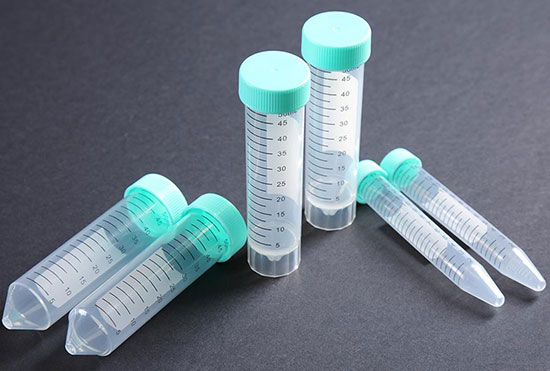Introduction:
Centrifuge tubes are crucial equipment in laboratories for separating and isolating various substances. Choosing the right centrifuge tubes is essential to ensure accurate and reliable results. This article discusses key factors to consider when selecting suitable centrifuge tubes for laboratory applications.
Material Compatibility:
The first consideration is the material compatibility of the centrifuge tubes with the substances being processed. Different materials, such as polypropylene, polycarbonate, or glass, offer varying levels of chemical resistance. Ensure that the chosen material is compatible with the solvents, reagents, or samples used in your experiments.
Centrifugation Speed and Temperature:
The maximum centrifugation speed and temperature should be evaluated when selecting centrifuge tubes. Some experiments require high speeds and temperatures, while others may need low-speed centrifugation. Ensure that the selected tubes can withstand the anticipated operating conditions without deformation or damage.
Tube Size and Capacity:
Consider the volume and capacity requirements of your experiments. Centrifuge tubes are available in various sizes, such as 1.5 mL, 15 mL, or 50 mL. Choose a size that accommodates the sample volume, allowing sufficient headspace for effective separation during centrifugation.
Sealability and Contamination Prevention:
Effective sealability is crucial to prevent sample leakage and contamination. Look for centrifuge tubes with secure and leak-proof caps or plugs. Additionally, consider options with features like O-rings or screw caps that provide enhanced sealing capabilities.
Specialized Applications:
Certain laboratory applications may require specialized centrifuge tubes. For example, DNA/RNA extraction may necessitate tubes with RNAse/DNAse-free properties. Some experiments might require sterilization capabilities or tubes suitable for cryogenic storage. Identify any specific requirements and choose tubes designed for those applications accordingly.
Quality and Durability:
Ensure that the chosen centrifuge tubes are of high quality and durability. Look for tubes that are resistant to breakage, cracking, or chemical degradation. Consider reputable brands and seek user reviews to assess the overall quality and reliability of the tubes.
Cost Considerations:
While quality is essential, cost considerations are also important. Compare prices from different suppliers and balance your budget with the desired features and performance of the centrifuge tubes. Remember that compromising on quality may lead to inaccurate results and additional costs in the long run.
Conclusion:
Selecting suitable centrifuge tubes for laboratory applications requires careful consideration of factors such as material compatibility, centrifugation speed and temperature, tube size and capacity, sealability, specialized applications, quality, durability, and cost. By evaluating these factors, researchers can ensure optimal performance and reliable outcomes during centrifugation processes.




